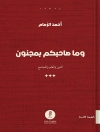We are in an age of overlapping crises: Corona pandemic, Russia’s invasion of Ukraine, rising inflation rates, worsening climate change, gas shortages. How should we deal with these crises? How can we decide what is true, what actions are effective and justified, and what is moral? Where do we fall victim to ‘fake news’ and where do populists exploit people’s fear? In these confusing times, distrust in politics is growing. The fairness of the economy is doubted and the independence of science is questioned. Through in-depth insights into the performance of science and the intuitive perception of complex interrelationships, the author illustrates ways out of overwhelm, fear and uncertainty. In addition, this book aims to inspire more confidence in one’s own ability to shape collective challenges.
Jadual kandungan
Vorwort zur dritten Auflage
Einleitung
Teil I: Wie wahr ist die Wahrheit? Die These von der postfaktischen Kommunikation
Teil II: Die Empfänger von Botschaften: Verunsichert im Post-Erfahrungs-Dschungel
Teil III: Wem kann man noch trauen: Die Post-Glaubwürdigkeitsfalle
Teil IV: Gefangen sein in Echoräumen: das Post-Informations-Dilemma
TEIL V: Von Mistrauen, Fake News und Verschwörungserzählungen: Postfaktische Verwirrungen
TEIL VI: Wissen und Wünschbarkeit: Auswege aus den Post-X-Verstrickungen
Teil VII: Die Post-X-Krise: Aufgaben für Politik und Wissenschaft
Teil VIII: Ein 10-Punkte-Programm zum persönlichen Umgang mit der Post-X-Gesellschaft
Weiterführende Literatur
Mengenai Pengarang
Prof. Dr. Dr. h.c. Ortwin Renn
Wissenschaftlicher Direktor am Institut für Transformative Nachhaltigkeitsforschung (IASS) und emeritierter Professor für Umwelt- und Techniksoziologie der Universität Stuttgart.












